Walkabout: The “Bain” of Her Mother’s Existence, Part 3
This is the story of wealth, hurt feelings and stubbornness in a Brooklyn family, and the greed that surrounded the entire affair. In Part One, we met the Brasher family, millionaire residents of Park Slope. Widowed Mrs. Brasher did not like her only daughter Louise’s choice of husbands, and cut Louise and her daughter out…

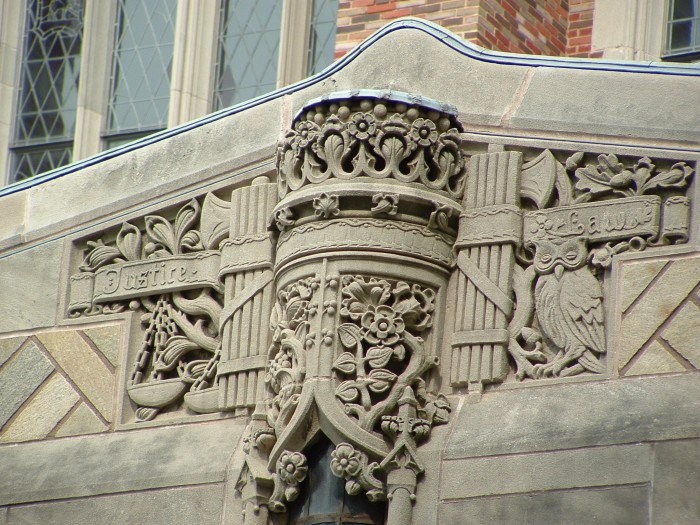
This is the story of wealth, hurt feelings and stubbornness in a Brooklyn family, and the greed that surrounded the entire affair. In Part One, we met the Brasher family, millionaire residents of Park Slope. Widowed Mrs. Brasher did not like her only daughter Louise’s choice of husbands, and cut Louise and her daughter out of her large will.
Part Two is the story of the trial to break the will. At the end, Louise Bain lost, and unless the decision could be overturned by the Appellate Court, Louise and her family would never see a cent of her parents’ money.
When the case went to the jury in 1920, they pondered long and hard, pouring over the lengthy will, plus the four codicils, and days of testimony. At last they thought they had found a Solomon-like solution. Hidden deep in the original will was a bequest for Louise, after all. She was left a trust fund of $50,000 out of the $1,200,000 estate.
The jury voted to give that to her, plus $10,000 for attorney’s fees, and a $10,000 bequest already in the will for her son, William Clayton. They decided after 12 hours of deliberation to throw out the codicils which would have left Mrs. Louise Bain with nothing.
But when they made the announcement in court, they inadvertently set in motion a clause in the will that totally disinherited Mrs. Bain. The clause stipulated that she would get nothing if she contested the will. How they all missed that is inexplicable, but now Mrs. Bain could not legally receive any money.
The jury was devastated.
They had not realized what they were doing, and begged Surrogate Judge Wingate to set aside the verdict. Some wept in their chairs, while others pleaded with the judge. He refused, and the case was immediately filed for the Appellate Court. Judge Wingate told the press, “there has been no miscarriage of justice…a person has a right to dispose of his or her property as they see fit.”
Mrs. Brasher’s will divided the large estate into a $500,000 bequest to the Church Charity Fund, with another $100,000 going to a friend, $400,000 to $600,00 to Mrs. Brasher’s lawyers, and the rest divided up between small bequests to grandson William Clayton, servants and expenses.
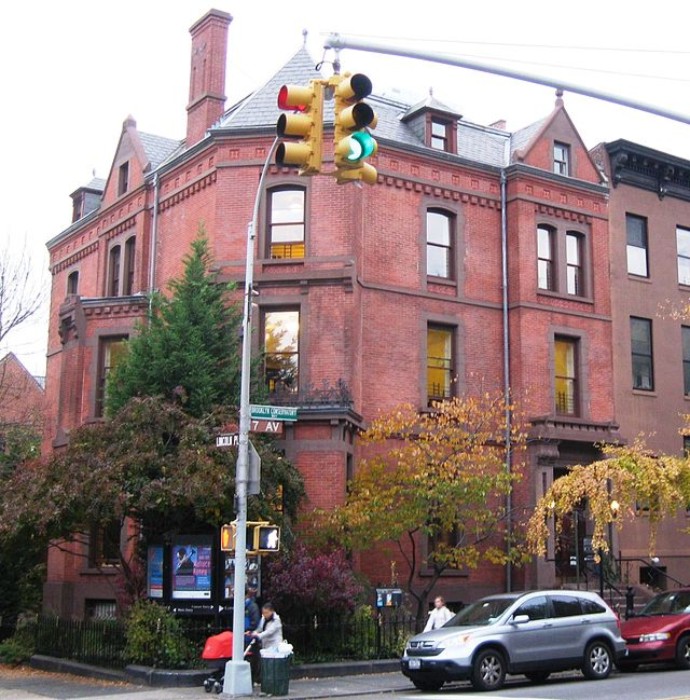
58 7th Avenue, former Brasher home, now Brooklyn Conservatory of Music. Photo: Jim Henderson for Wikipedia
When the Church Charity Fund found out that Mrs. Bain was disinherited, they offered to give her $200,000, saying they could not in good conscience take all of that money while a daughter gets nothing. Judge Wingate said they were not legally able to do that. Mrs. Bain and her attorneys also did not want the money, saying that of all of the parties who stood to inherit, the charity was the most deserving, and they would not challenge the gift.
But they would appeal. So while they waited for their date in court, Mrs. Louise Bain went back to work as a saleswoman in a Fulton Street store, as did her 16-year-old daughter, Jeanette. The beneficiaries had to wait, too, as no moneys would be paid out until after the decision of the Court of Appeals.
After the trial, Mrs. Bain was hospitalized with pneumonia. The stress had been too much for her. Judge Wingate gave her and her two lawyers an extra 30 days to work on her appeal. In August of 1920, Judge Wingate upheld his decision, despite a letter signed by 10 of the 12 jurors asking him to set the verdict aside and conduct a new trial. He refused. It was now up to the Appellate, and should that fail, Mrs. Bain and her lawyers were ready to go to the Supreme Court.
The appeal would introduce several new points into the case. One was a law that stipulated that no one with a husband, wife or child living could leave a charity or institution a majority of their estate. Mrs. Brasher’s will, if the codicils were included, left more than half to charity. That was not legal.
The second point of appeal was the fact that the beneficiaries had as council a powerful retired Supreme Court judge named Herbert T. Ketchum. Mrs. Bain’s attorneys were ready to argue that he asserted undue influence in the courtroom because of his reputation.
They also claimed that Mrs. Brasher’s attorneys, who stood to inherit over half a million dollars from the estate, had broken attorney-client rules and pressured the elderly Mrs. Brasher to write her will favoring them.
In March of 1921, before the case could be heard by the Appellate, the parties settled. Louise Bain’s settlement was supposed to be secret, but all the papers revealed that they thought she had taken the offer of $200,000. Her son, William, who now lived in Texas, came up to New York, and was himself able to collect the $10,000 left to him by his grandmother. The rest of the parties got most of their money, as originally stipulated. It was all over.
But was it? Of course not.
No sooner had the settlement been accepted, the lawyers involved began fighting each other. Ex-Supreme Court Judge Ketchum, who had represented the legatees, except for the Church Fund, wanted to collect his fee. He had been promised $60,000 to work the case, but now that it was over, he didn’t feel that that was enough money. He put in a bill to the estate for $150,000.
The legatees, led by the Brasher legal team of Smith, Weynberg & Rich, refused to pay it. Ketchum appealed to the Surrogate on the case, Judge Wingate. The legatees wanted a trial. Judge Wingate said no, but held a hearing.
At the hearing Ketchum basically said that the legatees had hired him because of his experience as a lawyer and 18 years on the bench. You want the best? You have to pay for it. He also testified that he had been promised a contingency, not a flat fee. This was his contingency. Judge Wingate called a continuance, as he had much to consider.
Meanwhile, in search of more money in case Ketchum won, Brasher lawyer Herbert Smith filed suit against the People’s Trust Company, the bank that had most of the Brasher money in their vaults. He and his firm alleged that the Trust had not been good stewards of the money. He claimed that the bank was paying its own lawyers too much in legal fees for Brasher-account legal work.
The bank’s lawyers were the venerable firm of Wingate & Cullen. The “Wingate” in the name referred to the father of Surrogate Judge Wingate, a longtime partner in this white shoe firm. Judge Wingate recused himself, and a new judge was appointed, which meant a continuance on that hearing, too.
At the same time this was going on, Judge Wingate reopened the Ketchum hearing. Three prominent legal experts testified that they thought the $150,000 fee was reasonable. Cheap, even. They would have charged $275,000 for the same services.
Another expert witness testified that Ketchum actually deserved 25 percent of the remaining estate. He said this was a difficult trial, and that Ketchum had been cast as the bad guy in the press, depriving a daughter from her mother’s estate. His reputation had been sullied. Yes, he deserved his $150,000, and more.
Judge Wingate took two weeks to render his decision. He awarded Judge Ketchum the original $60,000, far less than what he wanted. Smith et al had to pay the original amount. Judge Ketchum appealed.
Mrs. Bain, who now had some money, wasn’t immune from a lawsuit either. She was sued by Dr. John W. F. Meagher, one of the expert medical witnesses called by her attorneys during the original trial. He had been promised a fee of $750 for his testimony regarding Mrs. Brasher’s mental state when she had drawn up her wills.
He was feeling underappreciated too, and now wanted $2,000.
No doubt, at the end of the day, everyone chipped away at the Brasher fortune. One wonders how it all worked out in the end. The newspapers had long moved on to new and more sensational stories, and the results are unknown. The case disappeared from the papers.
On November 27, 1928, Mrs. Louise Bain died of pneumonia in her Morristown, N.J., home. Her daughter and son survived her. No mention was made of George Bain, her husband. Jeanette Bain was now married, as was William. The funeral was held a few days later.
The Brooklyn Eagle ran a short story reminding the readers of the long and spectacular fight to break the will of Martha Brasher. The Tale of the Disinherited Daughter was over.
In conclusion, did conniving lawyers cheat Mrs. Bain out of her rightful fortune? Perhaps Mrs. Bain should have gotten more than she did. At least the settlement was better than nothing.
(Top photo: Ornamental frieze, Yale Law School, New Haven, Conn. Photo: S.Spellen)


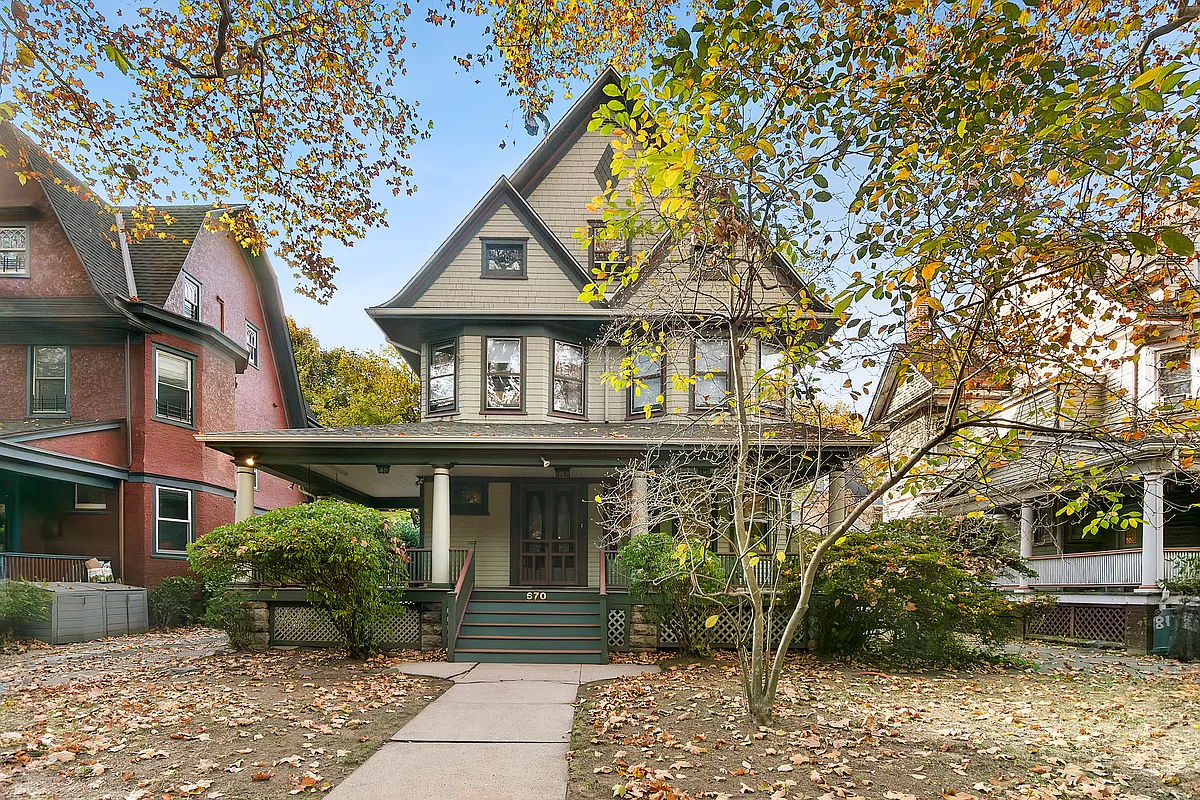
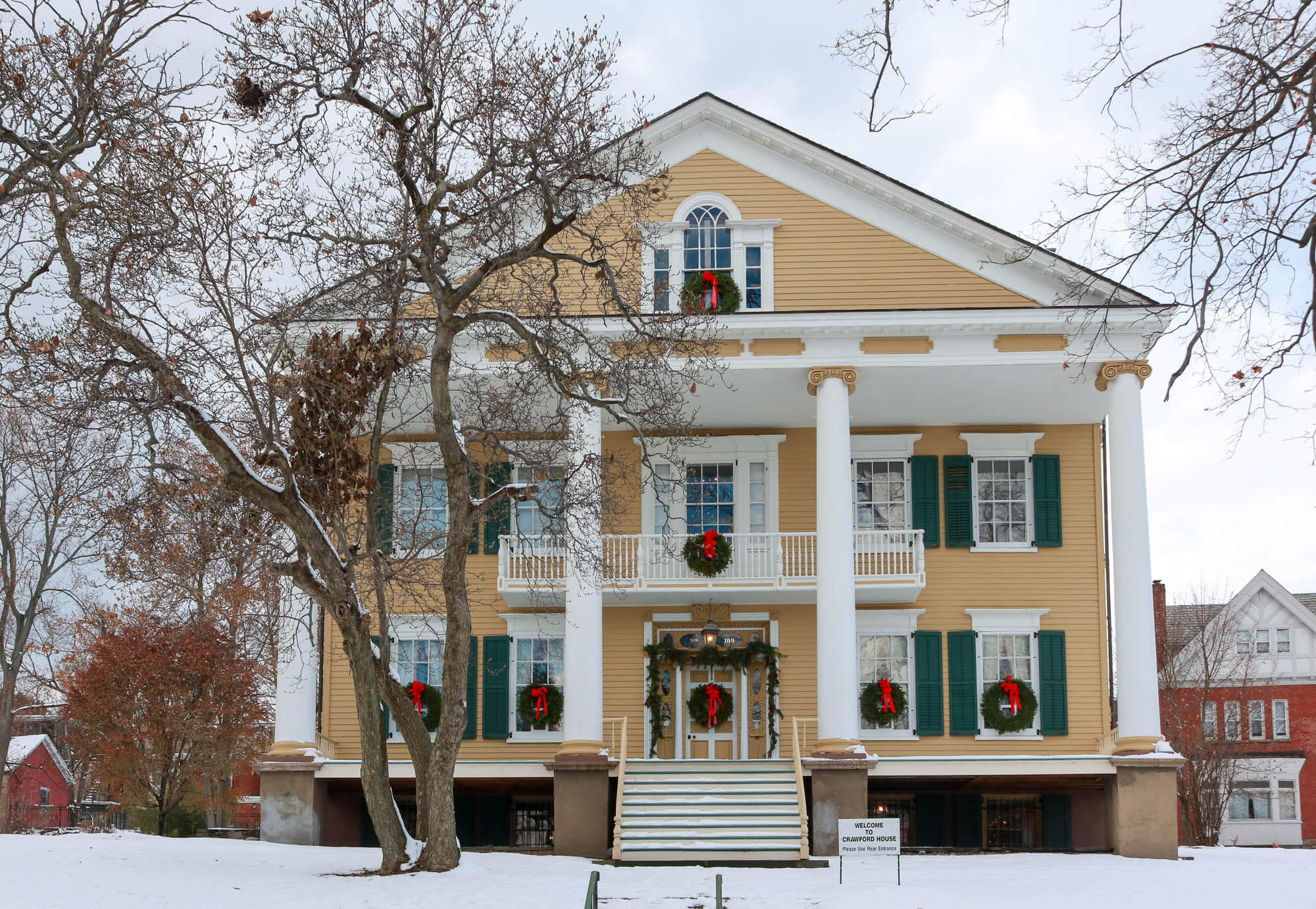




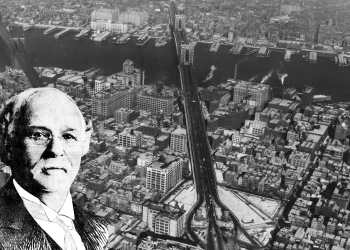
man, those amounts of money sound like a lot even for today; i can’t even fathom how wealthy the Brashers actually were. such a cool story!
so lawyers were just as greedy then as they are now